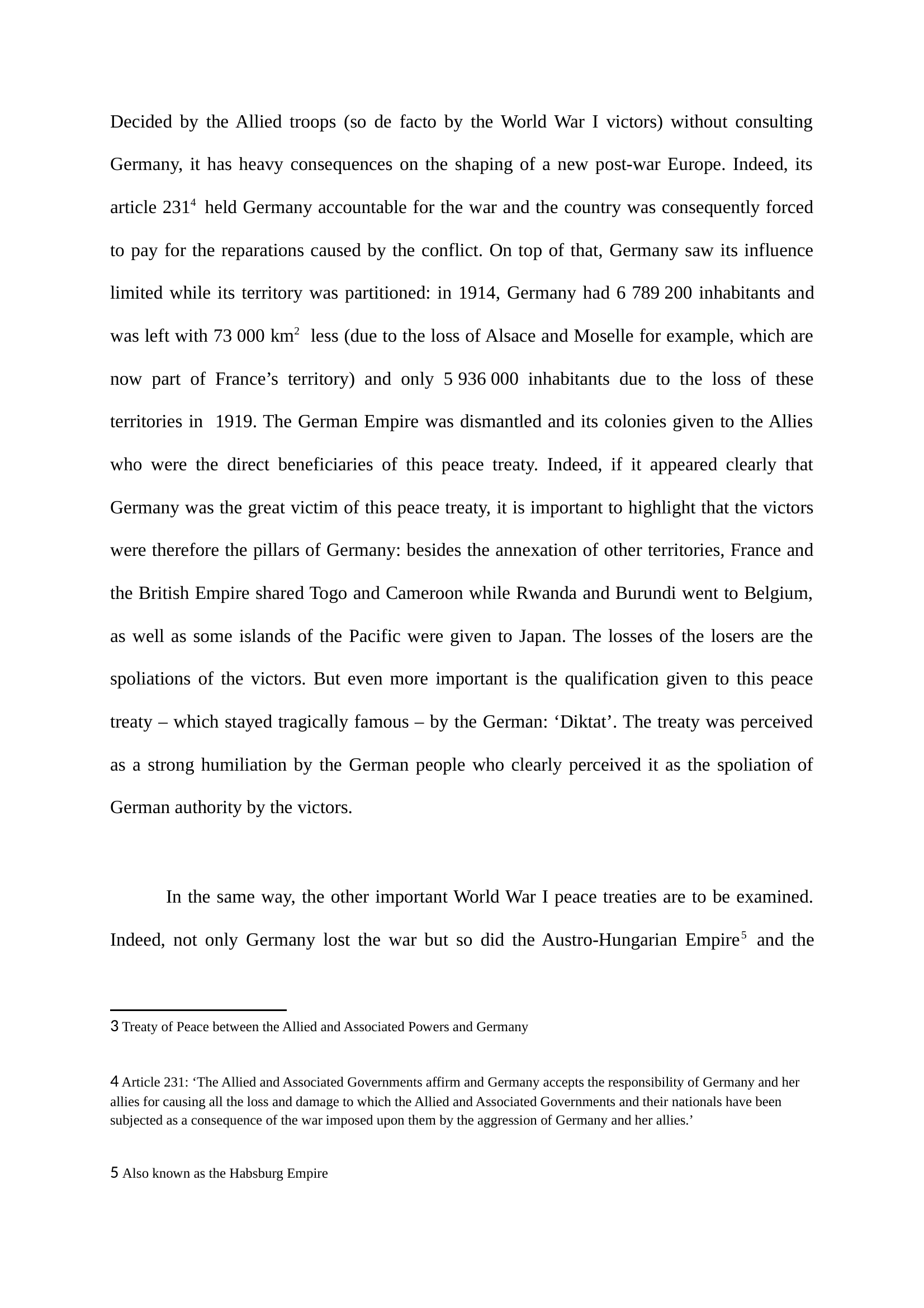"Aux vainqueurs la spoliation" - Critique (Anglais)
Publié le 18/11/2017
Extrait du document
«
Decided by the Allied troops (so de facto by the World War I victors) without consulting
Germany, it has heavy consequences on the shaping of a new post-war Europe.
Indeed, its
article 231 4
held Germany accountable for the war and the country was consequently forced
to pay for the reparations caused by the conflict.
On top of that, Germany saw its influence
limited while its territory was partitioned: in 1914, Germany had 6 789 200 inhabitants and
was left with 73 000 km 2
less (due to the loss of Alsace and Moselle for example, which are
now part of France’s territory) and only 5 936 000 inhabitants due to the loss of these
territories in 1919.
The German Empire was dismantled and its colonies given to the Allies
who were the direct beneficiaries of this peace treaty.
Indeed, if it appeared clearly that
Germany was the great victim of this peace treaty, it is important to highlight that the victors
were therefore the pillars of Germany: besides the annexation of other territories, France and
the British Empire shared Togo and Cameroon while Rwanda and Burundi went to Belgium,
as well as some islands of the Pacific were given to Japan.
The losses of the losers are the
spoliations of the victors.
But even more important is the qualification given to this peace
treaty – which stayed tragically famous – by the German: ‘Diktat’.
The treaty was perceived
as a strong humiliation by the German people who clearly perceived it as the spoliation of
German authority by the victors.
In the same way, the other important World War I peace treaties are to be examined.
Indeed, not only Germany lost the war but so did the Austro-Hungarian Empire 5
and the
3 Treaty of Peace between the Allied and Associated Powers and Germany
4 Article 231: ‘The Allied and Associated Governments affirm and Germany accepts the responsibility of Germany and her
allies for causing all the loss and damage to which the Allied and Associated Governments and their nationals have been
subjected as a consequence of the war imposed upon them by the aggression of Germany and her allies.’
5 Also known as the Habsburg Empire.
»
↓↓↓ APERÇU DU DOCUMENT ↓↓↓
Liens utiles
- Pater Walter Horatio , 1839-1894, né à Londres, écrivain et critique anglais.
- Un critique anglais contemporain, K. Hackett, pense avoir trouvé la clé de Rimbaud dans le caractère enfantin du poète. Qu'en pensez-vous ?
- Beerbohm (sir Max) Caricaturiste et critique anglais (Londres, 1872 - Rapallo, 1956).
- exposé anglais introduction to the Consumer Society
- Cyrano: Comment alors cette critique est elle dénoncée à travers le rire ?


